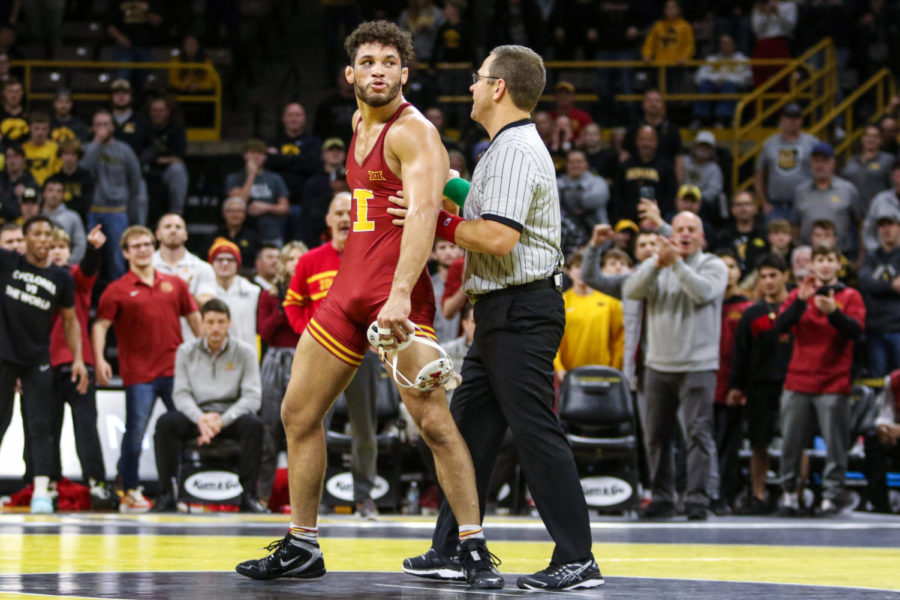EDITORIAL: A voice for all better than silence of none
February 14, 2003
Mention the Ames City Council to a group of students and you’re likely to hear a series of grumblings about alcohol, couch and other ordinances that similarly affect students.
Slightly more than 50,000 people live in Ames, according to the latest census. Iowa State has an enrollment of 25,863 for spring semester. Even if not all of these students “claimed Ames” on their census forms, they still represent a formidable chunk of the population. But of the six seats on the Ames city council, not one of them belongs to an ISU student.
This is understandable. Students lead busy lives, and running for city council is an investment of time, energy and governmental know-how that eludes the average undergraduate. But we need representation, and if a new proposal passes the council, we may finally get it.
The proposal calls for an ISU student to be an ex-officio, or non-voting member, of the council. While not exerting the same power as voting members, the student would act as a communicator between the campus and the council, giving a student perspective to local politics during council debate, a perspective that is currently missing in action.
While Mayor Ted Tedesco supports the proposal, board member Judie Hoffman has said “it’s hard for me to think one student can represent all of campus, with its diversities.”
A liaison between Iowa State and the city council, whatever its drawbacks, would represent a marked improvement over the level of representation we currently have — none.
The liaison should be well-versed in campus policies and politics, a qualification that makes it a good position for a GSB president or a student appointed by GSB. The student would also have to be approved by the City Council.
Several City Council members graduated from Iowa State, and Riad Mahayni, who is filling Herman Quirmbach’s spot, is a professor of community and regional planning. But none of these members have the same perspective a student would bring to the council.
Other universities have grappled with the issue of student representation. Brigham Young University, in Provo, Utah, has a “student rep” on its city council. College Park, Md., home to the University of Maryland, recently seated its first student liaison to its city council. Madison, Wis. has a recent UW graduate on its council.
Iowa State falls into two different city wards, so if a student wanted to run for council, the opportunity is always there.
But even if that does happen, a permanent student liaison would benefit both the campus and the community, fostering better communication between the two.






